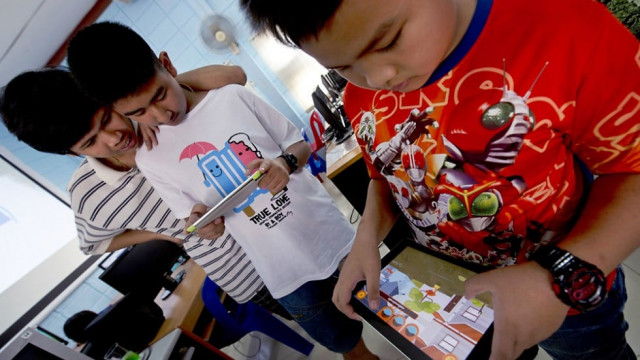Social media poses threat to humanity, warn scientists
Researchers argue academics should address study of large-scale impact of tech in society as a 'crisis discipline'

A study published in the journal "Proceedings of the National Academy of Sciences" has pointed out that social networks can be a threat to human civilisation.
As many as 17 researchers specialising in biology, psychology, neural and climate sciences, among others, argue that academics should address the study of the large-scale impact of tech in society as a “crisis discipline”.
“Collective behaviour provides a framework for understanding how the actions and properties of groups emerge from the way individuals generate and share information. In humans, information flows were initially shaped by natural selection, but are increasingly structured by emerging communication technologies,” read the paper.
It said that larger and more complex social networks now transfer high-fidelity information over great distances at a low cost. "The digital age and the rise of social media have accelerated changes in our social systems, with poorly understood functional consequences. This gap in our knowledge represents the main challenge to scientific progress, democracy and actions to face global crises,” it read.
Infodemia on social media
The researchers argue that the study of collective behaviour must reach a "crisis discipline", as well as the medicine, conservation and climate sciences.
Read more: Here’s how social media sites handle world leaders
"Technology companies fumbled with the pandemic of coronavirus ongoing, unable to contain the ‘infodemia’ of misinformation that has prevented the widespread acceptance of masks and vaccines," detail the authors, who warn that we may see unintended consequences of new technologies that contribute to phenomena such as "adulteration of elections, diseases, violent extremism, hunger, racism and war”.
Trouble brewing
Joseph Bak-Coleman, co-author of the study and researcher at the University of Washington, told the Vox that the question they were trying to answer was, "What can we infer about the course of society at scale, given what we know about complex systems?"
“It's how we use mouse or fly models to understand neuroscience. Some of this went back to animal societies – namely, groups – to understand what they tell us about collective behaviour in general, but also about complex systems more broadly. So our goal is to take that perspective and then look at human society with it. And one of the things about complex systems is that they have a finite perturbation limit. If you disturb them too much, they change. And they often tend to fail catastrophically, unexpectedly, without warning. We see it in the financial markets – suddenly they break out of nowhere,” said Bak-Coleman.
Also read: Social media freedom
Bak-Coleman and his colleagues point to many examples of areas in which they say social media has disrupted the flow of reliable info about health, climate and many other pressing topics. But they also expressed a tension at the heart of the work: that while the internet can be a terrible force, it can also be a force for good.
“Democratising information has had profound effects, especially for marginalised, underrepresented communities,” Bak-Coleman told Vox. “It gives them the ability to rally online, have a platform, and have a voice. And that is fantastic. At the same time, we have things like the genocide of Rohingya Muslims and an insurrection at the Capitol happening as well.”



















COMMENTS
Comments are moderated and generally will be posted if they are on-topic and not abusive.
For more information, please see our Comments FAQ